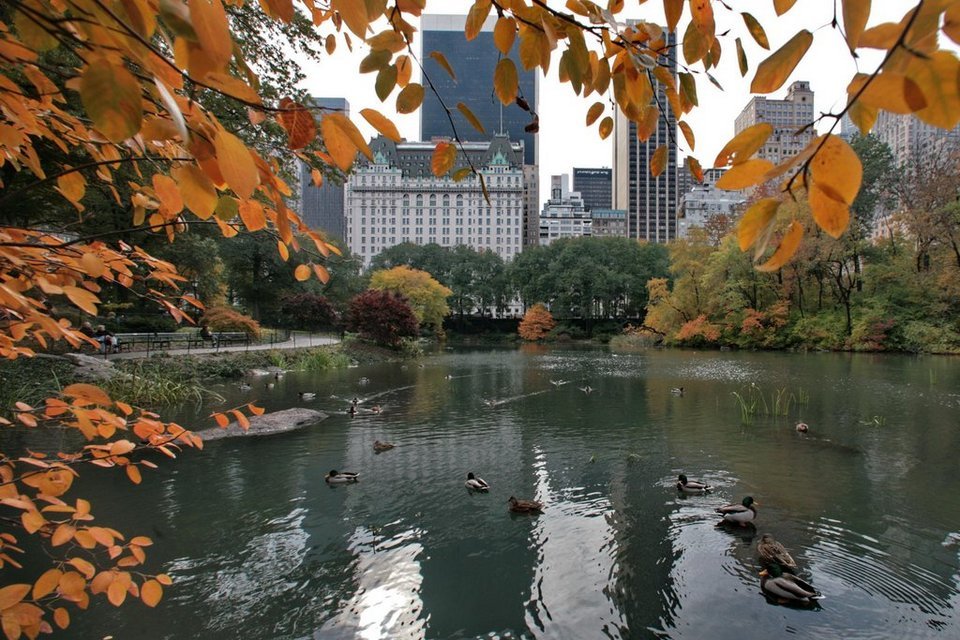
Long distance
HAVANA.- Where do the ducks in Central Park go when the lake freezes? Where? That question occurred to me repeatedly after closing that old and soiled book that a friend lent me some months before he left the country. He went to Miami. And others like him. So many that I cannot even remember.
To be part of a generation used to farewells and waiting can be exhausting, even poetic. They go somewhere else and wait — for the residence permit, the work permit, the driver’s license, family reunification, a better future.
And those who remain also wait — for the intermittent conversations, the remittances, the cell-phone recharges, the reunion visits, the changes that will make this a better country in which to live, the opportunity to follow them, a better future.
There’s also those who choose to stay. “I stay to turn off the beacon after everyone else has left,” they joke. But the particularly piercing case is that many of the friends with whom you want to share an era, in addition to books and beers, have left.
Most of them have gone to Miami, for reasons of family reunification, although the scholarships to study in other universities (and with them the possibility of living in another country) also have a migratory effect. And they don’t die, as stated by those who prefer to view long distances in definitive terms.
Someone whom I loved too much used to say that everyone who leaves dies in some way. But then he, too, emigrated and I began to resist radical ideas (cut off at the root). However, I do not deny that his point is well taken. He himself died a little here so he could be born in another place, in someone else’s arms, on another shore.
The damn sea. It was there long before anyone thought of crossing it — and so close to nostalgia in this city.
Few emotional games are as predictable as wondering about those friends who have gone beyond the nearby sea. More so when we wait for someone who has decided to return, ignoring the Cuban Adjustment Act and the dream of prosperity. Because they also return and forgive and rebuild.
Except that that’s not the case with my friends, because the 20s is not an age to return anywhere. We’re all still on our way out.
In the past, leaving Cuba was a more dramatic decision because it was irreversible. There was no return. That’s no longer the case.
That is why, a couple of days ago, I started asking myself where is the exact point in Cuba where you begin to count those 90 miles that separate me from Miami and a part of my life. Honestly, I don’t know. I think that if I had to pick one, it would be a spot on the Malecón wall.
There are certain books that should not be touched when someone knows where the friends are gone and cannot follow them, but cannot think where the damn ducks will go when the lake freezes, or if someone will return.
Emigration, the imminent possibility of seeing how those closest to you disappear from your daily life, is in the air. In the most casual conversations: “Once he’s there…” or “We shall see when winter comes.” Everywhere. That’s the truth. It could be anyone, oneself even.
To leave is no longer a definitive decision. Doesn’t have to be. No longer are there traitors or worms or stateless persons. Luckily, as a nation we have gradually overcome that kind of reasoning.
And in that same process, the sensation of missing someone all the time has settled in the DNA of an entire generation used to saying farewell and waiting, a generation spent cultivating intense friendships and loves that are constantly brief.
On any given day, the street has the same potholes as ever, the phone still works, the office remains in the same place, the door of the house stays open when you walk past in the evening. The single and inevitable difference is that they are no longer in this landscape but in another. It’s not the same, but somehow they are.
Sure, there are many ways to remain close. Hearing the same theme by Pink Floyd when someone on the other side of the Straits is playing it. Hearing the phone ring, seeing a couple of international zeros and knowing what that means, without answering.
Or waiting for the mail; working and chatting. Exchanging photos and messages. I’ll send you the book, don’t worry. Call my mother, help Dania in that job. It’s not the same, but they are close.
And that’s the least of it — the 90 miles, I mean. The most of it are the governments, the dispute, the policies, the telephone companies, the Customs, the mules, the airlines…
Where do the ducks in Central Park go when the lake freezes? Well, I don’t know. But those who are afar go to the park where one day I accompanied them to drink the worst rum in Cuba, they go to the photos and the green dot in Facebook, to the book I never returned, to the song that brings back happy days, to the intangible place that people create to be able to stay together.


